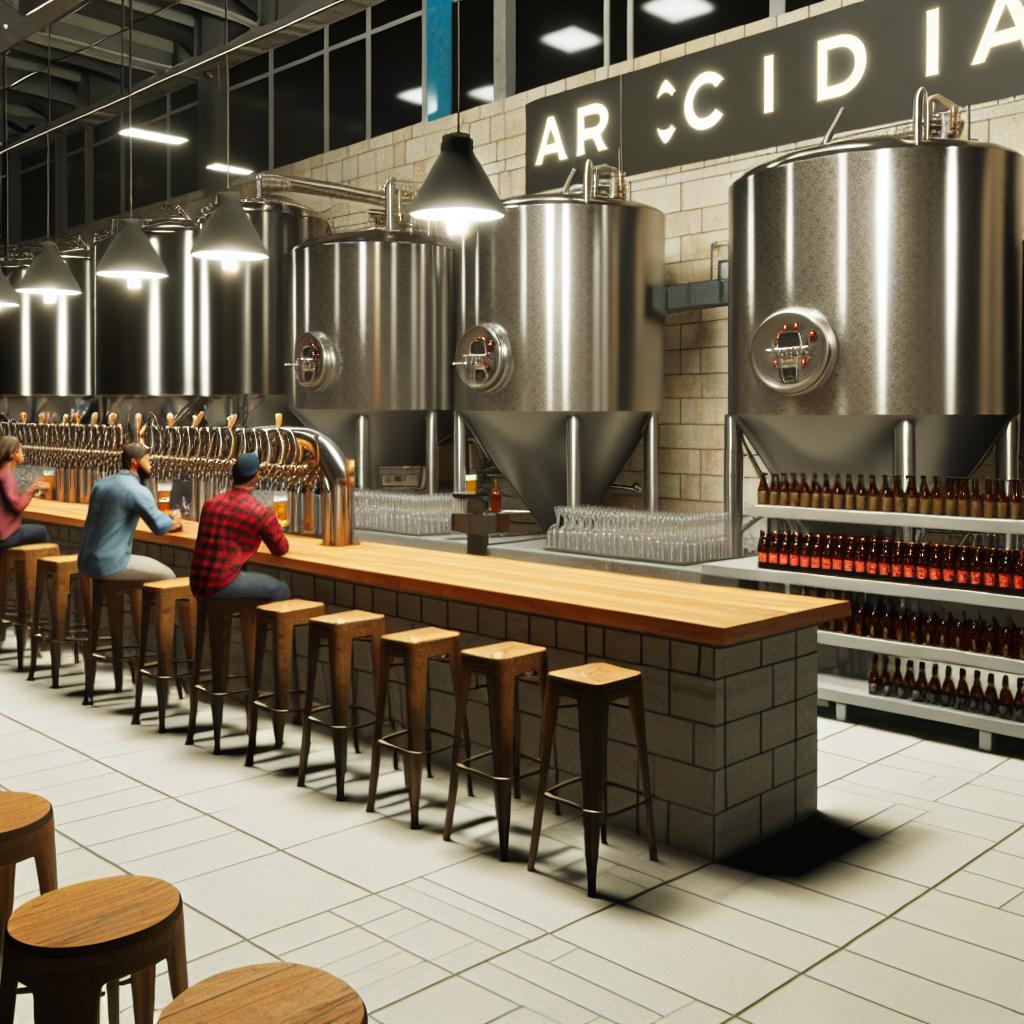Guide to Fort Ogden, Florida
Arcadia Brewing Company

Arcadia Brewing Company Overview
Arcadia Brewing Company was a noteworthy entity in the craft beer industry, celebrated for its focus on traditional British-style ales that were enhanced by innovative American techniques. Founded in 1996, the company started its journey in Battle Creek, Michigan, and later moved its primary operations to Kalamazoo, Michigan, facilitating its growth and reach.
Historical Background
The inception of Arcadia Brewing Company was driven by Tim Suprise, who envisioned a brewery that merged British brewing traditions with the ingenuity of American craft beer. This strategic blend helped the company gain prominence, particularly through its use of open fermentation, which significantly contributed to the distinct taste of the beers produced. Over the years, the brewery not only established a strong customer base but also became a well-regarded presence in the Michigan craft brewing scene, carving out a niche for itself among aficionados and casual drinkers alike.
Brewing Techniques and Offerings
Arcadia Brewing Company was distinguished by its unique brewing methods. The adoption of open fermentation was a noteworthy technique, often resulting in a distinctive flavor profile that set its beers apart from those of other competitors. This method involved fermenting beer in open vessels, a traditional technique that allowed natural yeast and bacteria to influence the fermentation process. Furthermore, the company made use of high-quality British two-row malted barley alongside regional American ingredients, ensuring a fusion of flavor profiles that attracted a wide variety of beer enthusiasts.
Among its notable beer offerings were:
– Arcadia IPA: This India Pale Ale (IPA) was characterized by a well-balanced blend of malt sweetness and hop bitterness, offering a rich and complex flavor that appealed to both seasoned IPA drinkers and new entrants to the style.
– Sky High Rye: Known for its spicy and earthy notes, this rye-based beer provided a unique twist on traditional ales, adding depth with its distinctive use of rye grain.
– Hopmouth Double IPA: Designed for those who sought a more intense hop experience, this double IPA did not shy away from bold flavors, making it a favorite among those who appreciated a robust and aromatic beer.
Brewery Locations and Expansion
Initially based in Battle Creek, Arcadia Brewing Company experienced significant growth, necessitating a move to a larger facility in Kalamazoo in 2014. This new location not only enhanced production capacity but also introduced the Arcadia Ale & Smokehouse. This venue offered patrons a comprehensive experience, combining the joys of craft beer with a curated dining menu. The expansion marked a pivotal moment in the brewery’s history, allowing it to draw in a more diverse audience and strengthen its bond with the local community.
Challenges and Closure
Despite experiencing success and expansion, Arcadia Brewing Company encountered challenges that are not uncommon in the craft brewing industry. The rise in competition and the financial strains of running an expanding operation placed a significant burden on the company. These pressures, along with other industry-specific challenges, ultimately led to the closure of the brewery in 2019, marking the end of its active operations but by no means erasing its impact on the craft beer scene.
Legacy
Though Arcadia Brewing Company is no longer active, its influence on the craft beer community continues to resonate. Its innovative approach to blending traditional and modern brewing techniques has left a substantial impact, becoming a point of reference for many brewers and beer enthusiasts interested in such methodologies. The numerous devotees who remember the taste and quality of Arcadia’s beers often consider it a benchmark for both quality and creativity in brewing. This legacy of excellence and innovation not only inspired other craft brewers in Michigan but also extended its influence beyond the state’s borders, ensuring that Arcadia’s contributions to the field are remembered and revered in the annals of craft brewing history.



